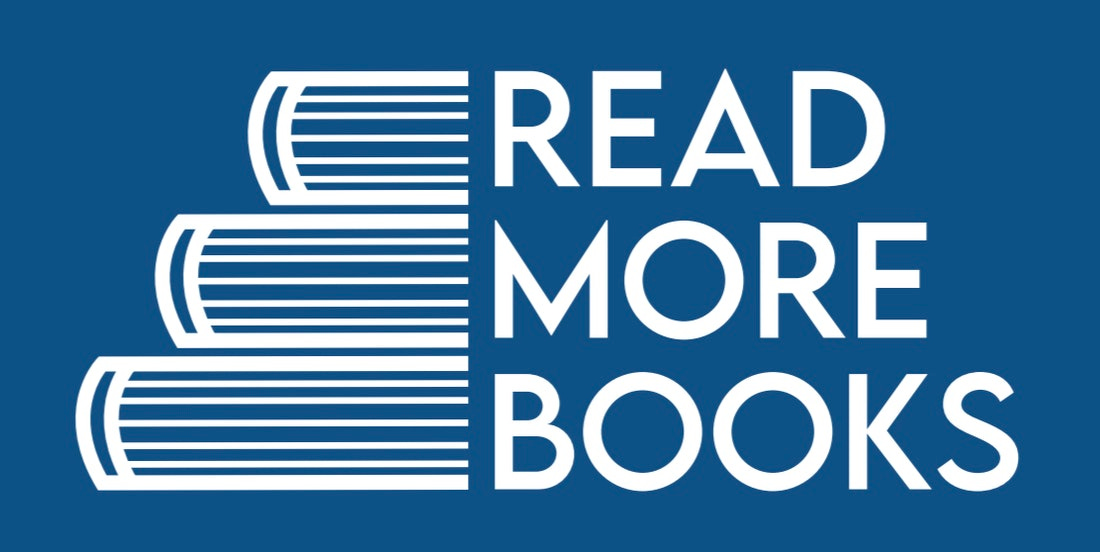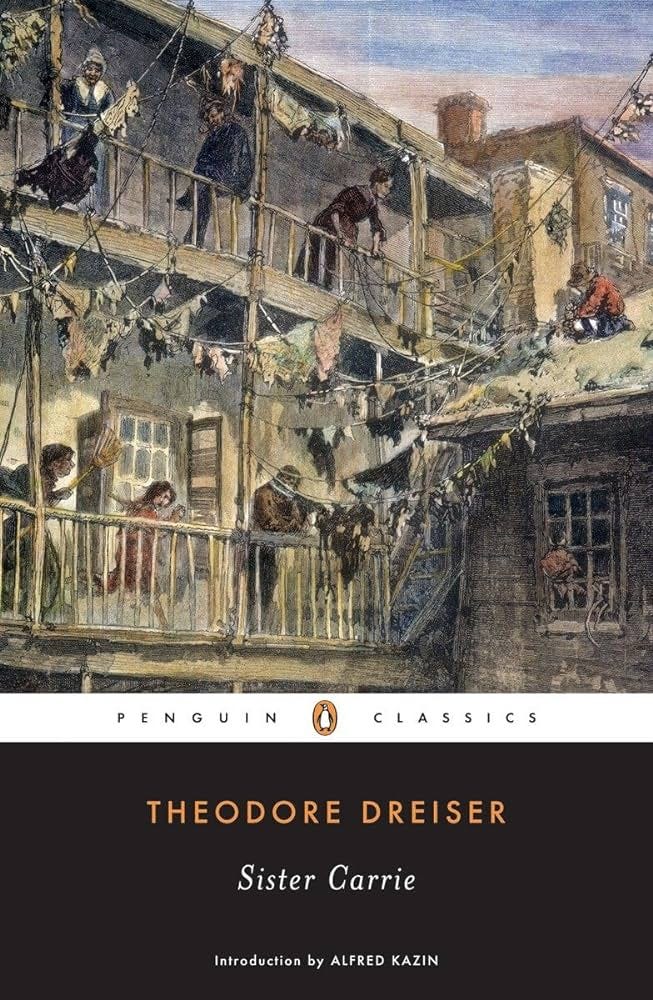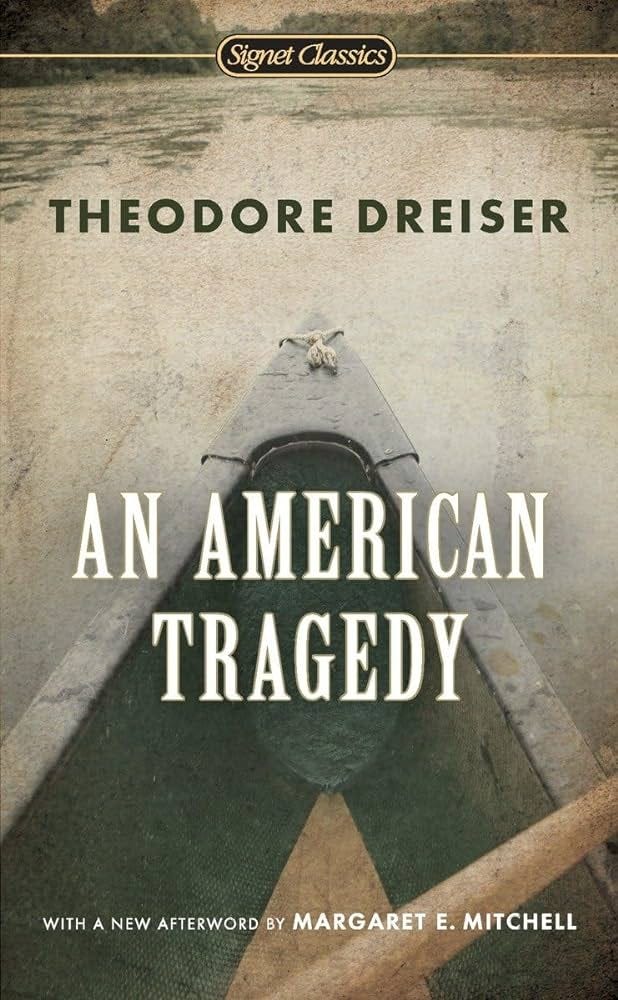What to Read Next: Overlooked American Classics
Issue #327, featuring Theodore Dreiser
Happy Friday, readers!
I’ve lately been on another big-time classics binge, having again gotten sick of most contemporary fiction. My reading life takes this turn somewhat reliably every couple of years. Listening to Kyle Chayka’s Filterworld had a bit of an impact, too (I’ll review that one in a couple of weeks).
This week, I’m reviewing two classic Theodore Dreiser books that are often found on “All-Time Best Novels” lists, but don’t get much attention on the bookish web or from the readers I interact with IRL. I’m so glad to have found them, read them, and pass them on to you!
Let’s get right to it.
Sister Carrie
In the opening scene of Theodore Dreiser’s first published novel, 18-year-old Carrie Meeber boards a train from small-town Wisconsin to the big city of Chicago. She’s ready to get out of dodge and start fresh, setting her sights on doing something with her life besides just accepting a boring rural existence.
Her hopes quickly run hard into the reality of life. There’s work to find and bills to pay, not to mention the loneliness of being in a big new place (despite the fact that Carrie is bunking with her sister and brother-in-law).
From that set-up, the book covers many years of Carrie’s life, following her ups and downs and ups again as she reaches some of those aspirations but also hits desperate rock bottom — always with seedy men in the picture, too.
For being published in 1900, this 650-page book is incredibly readable — much more so than plenty of other classics from that era. The dialogue is realistic and the prose isn’t stilted at all (which, interestingly, sets it apart from An American Tragedy). And despite being more character-driven than plot-driven, keeping the pages turning was never a chore.
Even though Sister Carrie didn’t have a happy-go-lucky ending, I really enjoyed it overall. There are certainly some downer elements here, which I don’t always like reading, but this one was different because Carrie was imbued with a sense of agency the whole time. Even when the cards were stacked against her, she maintained a cautious optimism and always did something to move forward in life.
Sister Carrie should certainly be on your lifetime reading list if you’re into classic literature, coming-of-age stories, and cautionary tales. The lessons that Carrie learns (and doesn’t learn) will stay with me for a long time.
An American Tragedy
Published in 1925 to immediate acclaim, An American Tragedy cemented Dreiser’s legacy as one of the great American authors of the early century. Modeled after a real criminal case, the story centers on Clyde Griffiths, an ambitious young man who wants nothing more than to find success and all the trappings of high status.
From his hardscrabble youth as the son of wandering evangelists, Clyde decides he’ll do just about anything to get ahead in life. That goal supersedes all other morality — no matter who or what stands in the way of his success will be tossed aside as needed.
For a while, it works. But then darker currents emerge, and Clyde goes too far in that pursuit. Only when it’s far too late does he realize the gravity of his actions.
Interestingly, the prose in An American Tragedy is a bit stiff. It’s not remotely poetic, it’s sometimes confusingly verbose, and there’s not as much dialogue as you’d expect for this kind of story. On the surface, it shouldn’t work nearly as well as it does.
Yet, I was hooked from the start, and my interest never flagged throughout the ~850 pages of Clyde’s story.
It actually reminded me a lot of Stephen King, who writes the inner lives of downward-spiraling characters better than any living author. Dreiser combined that with a bit of Gatsby-esque noir and shallow status-seeking, making for a remarkably powerful narrative.
The style and sheer scale of the book make it rather different than Sister Carrie, but the overarching themes tie them together quite closely, in my opinion. At a high level, both books offer psychological brilliance about ambition, poverty, getting what you want, and, ultimately, the things that truly matter in life.
I genuinely really enjoyed both books, but the driving plot in An American Tragedy put it over the top for me between the two. In this one, Dreiser hits on decidedly American themes that are just as relevant today as they were 100 years ago: religion and evangelism, abortion (and female health care), sex, loneliness, ambition, and the unceasing need to gain status. It’s an underdog, but without a doubt deserves at least some consideration for being one of the Great American Novels.
Thanks so much for reading. I deeply appreciate the time and inbox space.
-Jeremy




Thanks for this….i saw in Notes you were reading these Drieser novels and I had always wondered what Sister Carrie was about. So I got it out of the library. Just finished it today. Wow, so readable! The quest for comfort and happiness…..the lesson learned for me is to not get so caught up in comforts of today and dreams of a better tomorrow and to stop looking out the window and just get going! I enjoyed being immersed Chicago/nyc circa 1900….although the descriptions of destitution were rough. Great read.
Hey, Jeremy, I read Sister Carrie last year and loved it. I haven’t read An American Tragedy yet, but it’s on my (rapidly growing) TBR list.
I forgot to mention it in the original post, but I love that the kids are into The Hobbit. ❤️